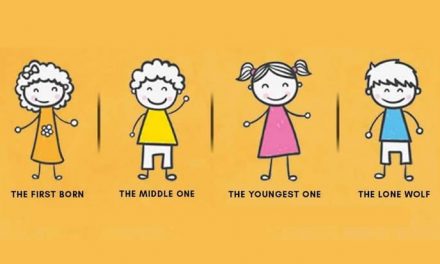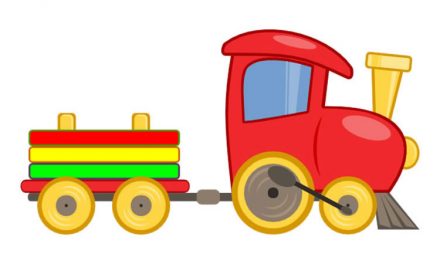
Emotional Intelligence … an oxymoron surely. How can anyone be emotionally intelligent?
Emotional intelligence — it sounds like an oxymoron, doesn’t it? Just like jumbo shrimp. People tend to think of others as either emotional or intelligent, but not both. So, just what is emotional intelligence? And why are you hearing about it only now?
In a Nutshell …
Emotional intelligence has a lot to do with being intelligent about your emotions. It involves the ability to recognize your own emotions as well as the emotions of other people. It includes understanding emotions. It also has to do with how you manage your emotions and how you manage other people’s emotions.
Psychologists have proposed several definitions of emotional intelligence (EI), but the original intent was to understand how some people who are so smart in some ways (have book smarts) can be so dumb in other ways (lack street smarts). A person can have book smarts, but not street smarts, because of a lack of emotional awareness and control, or emotional intelligence.
For example, you can probably think of a politician who was brilliant and ready to change the world. Then, out of nowhere (or so it seemed) came a sexual scandal or charges of taking bribes. The politician couldn’t manage his or her sexual appetite or greed well enough (or long enough) to realize a successful political career.
In the opposite situation, say that a student in school has a great deal of difficulty mastering math, grammar, and literature. He finds getting a grade as high as a C a real challenge. But he has this huge network of friends, gets invited to every party, is the trendiest kid in class, keeps up with everything and everyone, and is known as a great kid by adults, as well. He makes all the right life decisions, in spite of academic challenges.
Recognizing an Emotionally Intelligent Person
You can spot emotionally intelligent people pretty quickly. They’re the people who …
- Successfully manage difficult situations
- Express themselves clearly
- Gain respect from others
- Influence other people
- Entice other people to help them out
- Keep cool under pressure
- Recognize their emotional reactions to people or situations
- Know how to say the “right” thing to get the right result
- Manage themselves effectively when negotiating
- Manage other people effectively when negotiating
- Motivate themselves to get things done
- Know how to be positive, even during difficult situations
Recognizing an Emotionally Unintelligent Person
People who are low in emotional intelligence tend to have low emotional self-awareness. As a result, they often don’t even realize that they’re out of sync with the people around them. Emotionally unintelligent people have no idea how they come across to others or why they run into various difficulties in living.
Because of their behaviour, people with low emotional intelligence tend to lose out on things. Their behaviour is often self-defeating. Because of poor impulse control, inadequate social skills, and low empathy.
People who have low emotional intelligence are generally not very happy, aren’t in touch with their life goals, and have poor problem-solving skills. These deficits have real-life implications. They may have difficulty maintaining relationships with people, holding down jobs, being promoted at work, having satisfying intimate relationships, or dealing with stressful situations. The important point to understand is that intellectually smart people can be emotionally unintelligent.
In general, emotionally unintelligent people …
- Get angry or anxious without realizing why or what they’re feeling
- Don’t know how they impact others
- Fail to understand how others feel in various situations
- Don’t effectively manage other people’s feelings or behaviours
- Behave in a self-centred manner
- Lose control of their emotions, especially when under stress
- Don’t know the connection between emotions, thoughts, and behaviour
- Bring out the worst in others
- Don’t easily meet new people or maintain relationships
- Overestimate their own skills or abilities
- Keep getting into trouble because of poor problem-solving skills
- Become overly passive or aggressive in communicating with others
- Wind up aimless or direction-less in life
- Look at the dark side of things much of the time
- Don’t feel happy in life
- Don’t adapt well to change
- Find that people avoid them
Practical Uses
The first scientific paper on the topic was published in 1990. Since that time, millions of copies of books have been sold about it. A number of psychologists have carried out a great deal of research that looks at the impact of emotional intelligence at work, in families, with children, and basically anywhere that people interact with each other.
Organizations have used the information researchers have discovered about emotional intelligence to select and develop their employees and to produce better leaders; schools have used it to create more harmonious relationships among students; and it has been used with families to improve relationships.
Measuring Emotional Intelligence
EI is often measured as an emotional intelligence quotient (EQ). Psychologists use several tests to measure emotional intelligence. The tests generally fall into three categories:
- Self-report tests compare your responses to a database of thousands of others and cover areas that include how you see yourself dealing with difficult situations, how you tend to interact with others, and how you might describe your mood at times. The most commonly used self-report test is the EQ-i
- 360-degree assessments include the perceptions of others. People who know you from different perspectives — your boss, your spouse, your subordinates — all report on how they see you behave in the same domains that you rate yourself. So, you may think that you’re very assertive or socially interactive, but these people may see you differently. The most commonly used 360-degree assessment test is called the EQ-360
- Performance assessments are structured much like an IQ test. These tests measure emotional intelligence as an ability. People taking these assessments might be asked to recognize emotions in pictures of people, select responses to difficult life situations, or demonstrate an understanding of basic principles about emotions. The professional using the test compares a subject’s scores on these items to the thousands of others who have completed them. The most commonly used performance assessment test is the MSCEIT.





